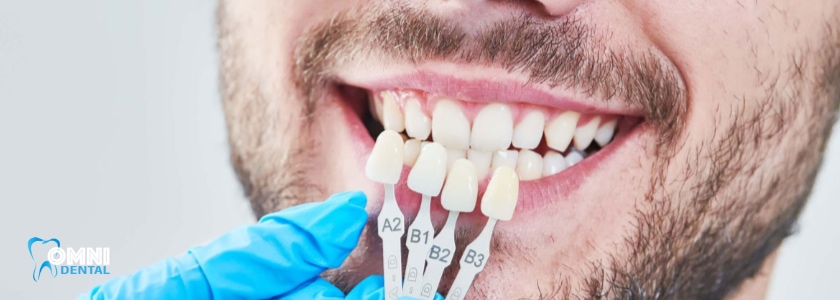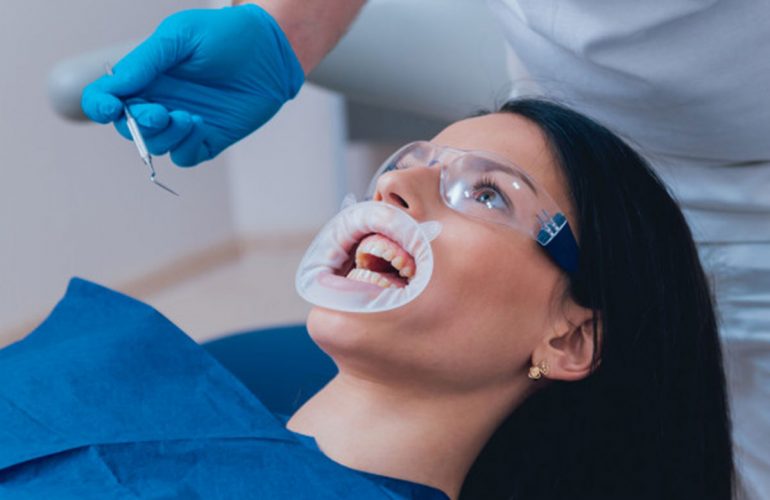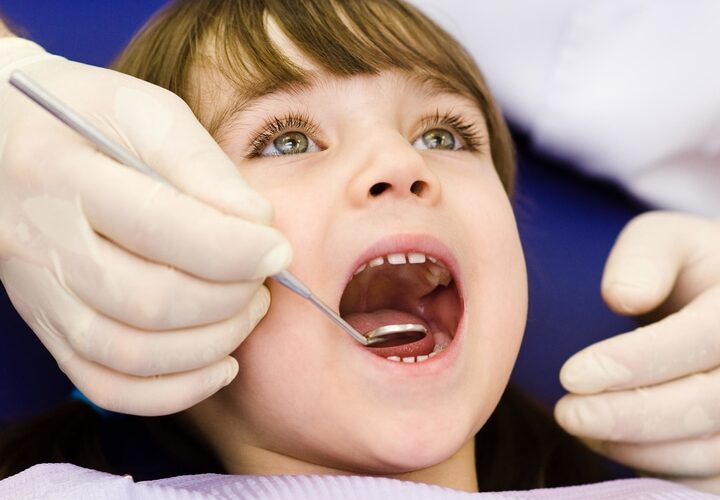
Prosthodontics
If you’ve never lost a tooth or needed a crown, then you’ve probably never visited a Prosthodontics. Prosthodontistry is a dental specialty focusing on missing teeth. These trained medical professionals treat a variety of oral health issues, and provide specialized care that suits each patient’s particular dental care needs.
Losing teeth can be a stressful experience, no matter your age. The sudden gaps in your smile can impact many aspects of your life, from your comfort while eating, to your speech and self-esteem.
Fortunately, prosthodontics and tooth replacement solutions have come a long way as dental technology and techniques advance. Dental implants are one of these revolutionary solutions, providing the sturdiest dental prosthetics and strongest functionality.
At Omni Dental, board certified Dr. Bilus Poles with years of advanced training, places stunning, lifelike prosthetic restorations on dental implants in Arlington Heights IL.
Dental Implant
Emergency Care
Teeth cleaning
What is Prosthodontics?
The term “prostho” means replacement and prosthetic while “dontist” means dealing with teeth. Essentially, prosthodontists are The recognized experts when anything needs to be replaced in your mouth. This can range from a single tooth, multiple teeth, or all teeth and gums in the mouth. While many other dentists can do some or all of these treatments, prosthodontists are the specialists dedicated to this type of care.
Prosthodontists expertly restore and replace teeth. They have trained additional three years after completing dental school including advanced-level courses, clinical and laboratory experience, patient care and research. Prosthodontists are also considered the “quarterback” of the dental treatment plan. They regularly lead teams of general dentists, specialists, and other health professionals to develop solutions for your dental needs. This rigorous training and experience provide prosthodontists with a special understanding of the dynamics of a smile and the preservation of a healthy mouth.
The prosthodontist deals with simple to complicated full mouth restorations that may involve, veneers crowns, fixed bridges, dentures, dental implants, or mixed implant and natural tooth restorations. They can also provide routine dental care. They are skilled in the management of TMJ-jaw joint problems, traumatic injuries to the mouth’s structures and/or teeth and snoring or sleep disorders. Those prosthodontists with additional training in maxillofacial prosthetics are trained to manage oral cancer reconstruction and continuing care.
Serving as the “architect” of a dental treatment plan, prosthodontists collaborate with general dentists, other dental specialists and health care professionals to develop solutions to your dental concerns.
Prosthodontists also understand patients’ other unique needs and treating complex such as:



When To Seek Out a Prosthodontist
Many times, your dentist can also fit crowns, replace teeth and insert implants. So if both a specialist and your usual practitioner can make you the same partial denture, which option is best?
On the whole, prosthodontists have a higher level of expertise and specialty training in many of these areas because of their extensive years of training. Also, they are best to seek out for complicated problems that involve surgery on bone and tissue as well as dental work, and it’s in these cases that your general dentist or orthodontist are most likely to refer you to a prosthodontist.
Prosthodontists don’t have additional credentials behind their name, but the American College of Prosthodontists and american dental association (ADA) mandate that they are the only specialists who can define themselves with wording like, “Specialist in Prosthodontics,” or “Practice limited to Prosthodontics.” In many states in the U.S., your general dentist can practice prosthodontics, but must display information that they are practicing as a “general dentist.”
What To Expect At Your First Appointment
Your first appointment will likely be more of a consultation to gain insight about the best course of treatment. It’s a good idea to request X-rays from your general dentist, if you have them, to help your prosthodontist better understand your case. You may need additional X-rays in following visits, or even in your first visit, but in-depth treatment won’t start until your following visits.
If you have dental insurance, ask your provider about care coverage before your appointment. In many cases, cosmetic surgery and implants are not covered, but you may be covered under trauma injuries or restorative procedures like crowns or dentures.
While a referral to a prosthodontist may initially seem daunting, if you do need a tooth replaced or other complex dental restoration, it can be comforting to know that you’re in the hands of an expert specially trained to help you achieve a beautiful, healthy smile.





